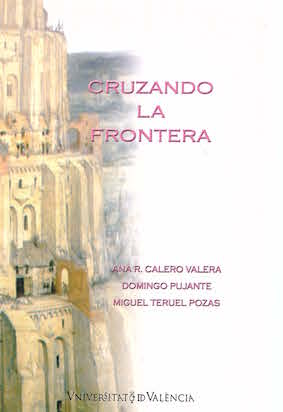Frontière religieuse et frontière chevaleresque dans L’Entrée en Espagne
DOI:
https://doi.org/10.7203/qf-elit.v12i0.5020Keywords:
Middle Ages, epic, otherness, chivalry, tolerance Abstract
Abstract
L’Entrée in Espagne is a XIVth century epic Franco-Italian poem that narrates Charlemagne’s military campaign to release the way of Santiago, inclu-ding a long episode relative to the feats of Roland, when he was in the East at the service of the Persian sultan. Our study tries to bring to light the relationships that settle down in this epic universe between the both sides faced: Muslims and Christians. On the one hand, it is shown the existence of an insurmountable border of religious and, first of all, cultural nature, between the we, with whom the author identifies himself, and the others, the enemies to win or to turn. Nevertheless, on the other hand a tendency is perceived to come near to the other, thanks to a common chivalrous ethics between Muslim and Christian elites. All it shows that the relationships between ones and others are more complex than those that it seemed at first sight in this epic universe.
 Downloads
Downloads
Downloads
Published
How to Cite
-
Abstract149
-
PDF (Español)112
Issue
Section
License
 Este obra está bajo una licencia de Creative Commons Reconocimiento-NoComercial-SinObraDerivada 4.0 Internacional.
Este obra está bajo una licencia de Creative Commons Reconocimiento-NoComercial-SinObraDerivada 4.0 Internacional.
Authors who publish with this journal agree to the following terms:
- Authors retain copyright and grant the journal right of first publication with the work simultaneously licensed under a Creative Commons Attribution License that allows others to share the work with an acknowledgement of the work's authorship and initial publication in this journal.
- Authors are able to enter into separate, additional contractual arrangements for the non-exclusive distribution of the journal's published version of the work (e.g., post it to an institutional repository or publish it in a book), with an acknowledgement of its initial publication in this journal.
- Authors are permitted and encouraged to post their work online (e.g., in institutional repositories or on their website) prior to and during the submission process, as it can lead to productive exchanges, as well as earlier and greater citation of published work (See The Effect of Open Access).



